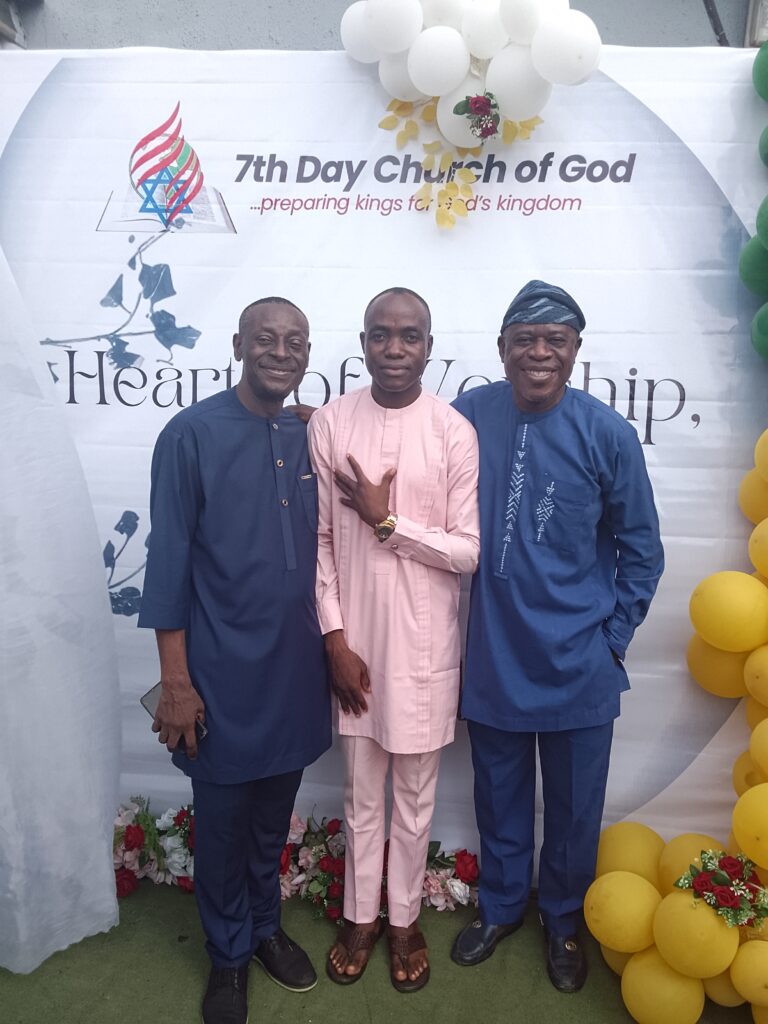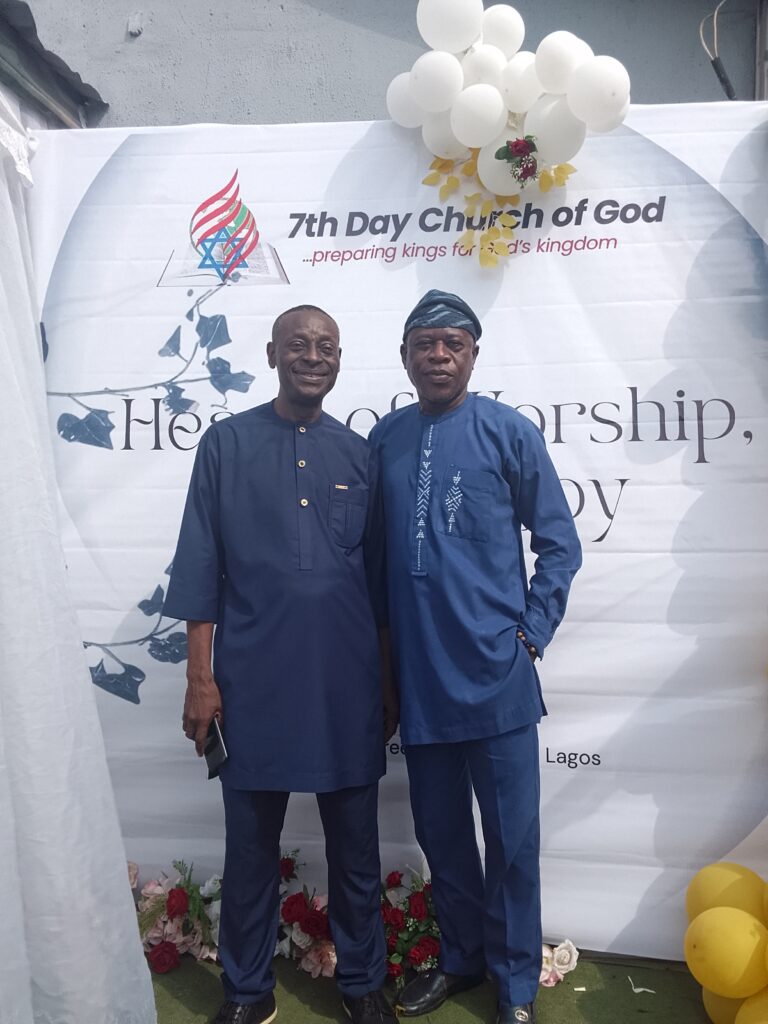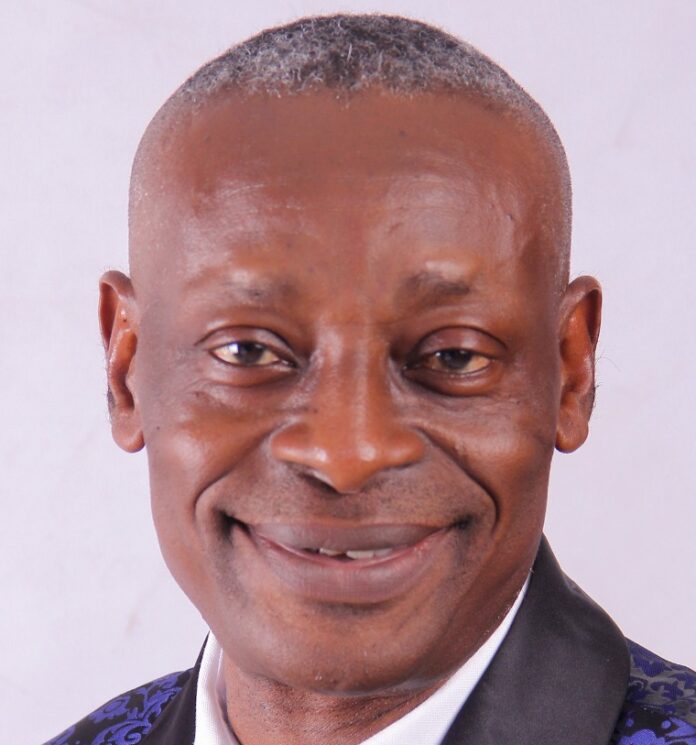Pastor Patrick Oyinkari, Overseer, 7th Days Church of God, Lagos, explains the basic doctrines of the church in this interview with Christian Benefits. He emphasises that the Sabbath-keeping church is in the pursuit of the truth as enshrined in the Scriptures. Oyinkari; a Professor and current Provost of Nubian American Advanced College, also explains the significance of the annual anniversary of the church. Excerpts.
How will you like us introduce you sir?
My name is Patrick Idah Oyinkari. In church circles, I am privileged to serve the people of God as a Pastor, Shepherd, or Overseer, which heavily leans on the teaching and compassionate ministries of reconciliation.
Briefly, tell us about your background and vocation or career beyond the spiritual.
I am a teacher, born into the house of a renowned educator from the time of the advent of missionary incursions in the Niger Delta, a lawyer enrolled in the Supreme Court of Nigeria, holding a hard-earned doctor of business leadership degree from the Graduate School of Business Leadership, University of South Africa. I’ve been in private and corporate law practice, served in the banking and finance sector at senior management levels, taught and served in leadership and ownership from kindergarten to tertiary education, currently, as Provost of Nubian American Advanced College.
What is the significance of the annual thanksgiving to 7 Days Church of God?
Without doubts, the LORD loads us daily with benefits and so worthy of our praises daily. We have however, in the course of time, chosen the second sabbath day that occurs in the Gregorian calendar month of November to collectively thank Him for His mercies and goodness we enjoy each passing day. We do not celebrate according to that calendar except as just mentioned. There are feasts of the LORD arranged from Passover/Lord’s Supper in the Biblical month of Abib/Nisan, which mainstream Christianity cancels and does not observe. Our annual Thanksgiving is, however, scheduled without recourse to these feasts as it uses the Gregorian calendar that governs civil society and work.
What should people expect from this year’s anniversary celebration?
The celebration of our appreciation of what the LORD does daily becomes an anniversary because it comes on a more easily understood schedule using the Gregorian calendar but the date is not static in that the schedule is aligned with the weekly cycle of days. It’s usually a day of joyful memories of the LORD’S blessings. So it’s filled with testimonies, music, dance, and merriment. We invite our neighbours and friends, other churches and family and the public. We use the occasion to announce the kingdom of God and the route to it.
Share with us the cardinal beliefs or doctrines of 7th Day Church of God as laid down by its founder?
The central belief of the founder, Apostle Samson Ediwe of blessed memory, which by the grace of God I’m continuing, is the pursuit of truth as enshrined in the Scriptures. For this reason, we are open to teaching and revelational knowledge. We will not however yield to every wind of doctrine (Ephesians 4:14) but must prayerfully subject them to intellectual and scriptural/spiritual testing as required in 1 John 4:1-3 and Isaiah 8:20. This focus has led to certain changes in the development of the church over time. Being spiritually alert with the backing of Scriptures had been a hallmark of his ministry. The focus on the imminent return of the Lord has made the church an End -time ministry. This focus is now tied to the ministry of reconciliation. He believed in the unity and commonality of believers. This belief is shared by his successors leading to the formation of the Association of Sabbath Keepers (ASK) and being an arrowhead in the togetherness of sabbath-keeping Bible-based believers.
Can you recall the event leading to your appointment as the successor of the late founder/general overseer of the church?
I did not meet the vibrant, evangelical, prayerful, soldiering, apostolic, and inspiring Pastor Ediwe in his lifetime but I’ve come to be told that my coming had been prophesied by him, evidenced by many things I’ve been doing. One major event prior to my ordination was the gathering of Sabbath keeping ministers from all over to the church by way of Sabbath Ministers Conferences organised under the aegis of the Reconciliation Ministries led by my humble self. My first day in the church was chaotic as a minister (the beloved Pastor Ben Emebeyo of recent blessed memory) upon spotting me enter, rose from the ministers’ section of the assembly and summoned/charged me to join them rather than sit among the other members of the congregation. Of course, I resisted, and there was a stir. I left the service with my wife, not wanting to go back there. But somehow, as time went by, I found myself there again helping to provide leadership by teaching and conducting ministerial development sessions to raise credible hands for positions. I called for nominations and had the brethren pray over them for a choice of the overseer. Then revelations came from sundry quarters in diverse forms pointing me out as the overseer. My desire had always been to make money to support the brethren and be a helping hand to them somewhat. I had run away from ordinations and left churches because of that. I was working in the bank and being a resourceful helper for those in need irrespective of their church affiliation. Now, I was beginning to think that these folks were being influenced by my benevolence, so I ran again. Afterwards, I took very seriously ill warranting my being scheduled for surgery abroad. The doctors said success chances were “50:50”. Meanwhile, various church assemblies kept praying and coming to anoint me with oil. Then I accepted the call to be a pastor/overseer, and my healing came rapidly. My health was restored – physiotherapy sessions stopped, I stopped using the collar and braces without which I couldn’t be placed in any position. I was now ready for ordination with a further condition that I will not be restricted from continuing my itinerant servicing of the body of Christ globally. For the first and so far only time within my realms of knowledge, all the sabbath-keeping churches I knew came together to ordain me and commission me for the task of overseeing the 7th Day Church of God while still serving other ministries

How many years now have you been the church’s general overseer, and share with us your experiences in that office over the years
I became overseer at a time when there was so much need for leadership to patch up many loose ends. The people needed to get oriented to doing things because they knew them and accepted the responsibilities associated with them. They had been used to being ordered to get things done (the founder was of the military). I have since been more inclined to discipleship than having a crowd. By the time I was ordained ten years after the demise of the founder, membership had drastically declined, some branches had been merged or closed for various reasons. The old church building needed improvement. I embarked on completing the rebuilding project and another structure in the compound I used to establish the Samson Ediwe Centre for Child Development. With my wife in support, education for all became our major thrust, especially for the children and younger adults. We launched entrepreneurship and empowerment programmes, started ministerial and leadership training, and rebranded the organisation with solid vision and mission statements to bring to fore the clear sense of purpose and belonging to the church. Guided by these, we crafted the tenets of faith and documented them with copious scriptural bases. By this time, it had become clear and obvious what being a member of the group entailed. Not claiming to have arrived at all knowledge, we have encouraged continual learning from the Scriptures and history geared towards finding the truth and obeying. This has led to certain changes in the development and growth of the church. The church has stood out for all people of faith and become a melting point of sorts for all believers who keep the sabbath. The church adopted the daily devotional writeups I made because there was then no one in circulation with sabbath-keeping beliefs. Other churches also embraced them and are using them. All seemed to be going well when troubles arose from within and outside eventually leading to the relocation of the church to its current address. There were forceful takeover bids by groups and individuals we thought we could relate with. For example, visiting us for a scheduled first combined service, one of the church groups came ordering us to make contributions and pay levies to build their secretariat, thus, ending the relationship. Some folks who were being sheltered and accommodated in the premises sought to subvert the authority and leadership of the church. Others who had left returned to woo congregants and instigate them to follow them. But we have survived these are more.
What are some of the changes, growth and development the church has witnessed since you became its general overseer?
I think I have touched on these in my respnse to the previous question. Suffice it to say that leading a people who voluntarily submit themselves to you is a great privilege as anyone could have been the leader. The joy of witnessing and conducting marriages, following up pregnancies to full term and dedicating the babies cannot be overstated. Again, the responsibilities and awe associated with tending the sick, aged, and weary cannot be belittled. To be there for those who grieve and to inter the departed is quite heavy and engaging but the LORD gives one graces. I highly commend the brethren who have stayed with me through the thick and the thin, attracting new comers and increasing membership. With their support and encouragement we now have been in the new place enjoying peace and have made it quite welcoming to all
How will you describe the church’s relationship with fellow-sabbath-keep assemblies; and by extension, non-sabbath-keeping assemblies, particularly the Pentecostal churches?
We have established ourselves as a family and friendly to all and sundry. We receive all brethren from sabbath-keeping churches and freely attend to them somewhat. Many non-sabbath-keeping assemblies relate with us and respect our views even though these views are not popular with mainstream Christianity (indeed, some are not known to some other sabbath-keeping churches). We reciprocate and choose to be gentle with them especially when it comes to us dealing with our differences which run deep.
At a point, you pioneered Association of Sabbath Keepers (ASK). Tell us again the Association and its state today?
Yes, I championed the course of Sabbath Keepers unity through seminars and conferences, visitations and joint fellowships and programmes. These led to the formation of the Association of Sabbath Keepers (ASK). It started in Nigeria and has moved globally with good men and women coordinating in their countries and regions. A major aspect of the Association is the holding of international conferences mainly virtually, since COVID.
Aside being the general overseer of 7th Day Church of God, you are also a barrister, a lecturer cum an administrator as Provost of Nubian American Advanced College. How do you play all of these roles together effectively?
I would ould say it’s grace and interest. My times are all engaged with these interests which take turns to be top priority. Whatever holds that spot takes my calculated attention and once over I switch to the next order of priority. I have little or no time for frivolities even though people often throw in things that could veer one off course. Somehow, grace and mercy restore my programmes and many times I have had to sacrifice comfort to make up. This is where the support and encouragement of my wife and family has been most invaluable.
Lastly, how will you describe the move of God at 7th Day Church of God this outgoing year 2025, and if Christ tarries, what should people expect from the church in the coming New Year 2026.
The hand of Abba Father Yahweh has been mighty working wonders in our midst but it’s not for man, being a privileged servant, to ascribe glory to himself. Incidentally, according to that which is common. While we live and relate with others in line with the Gregorian calendar, we observe the sacred calendar as fully well provided for in the Scriptures read by everyone else. So, we do not have things lined up to accord with 2026.


